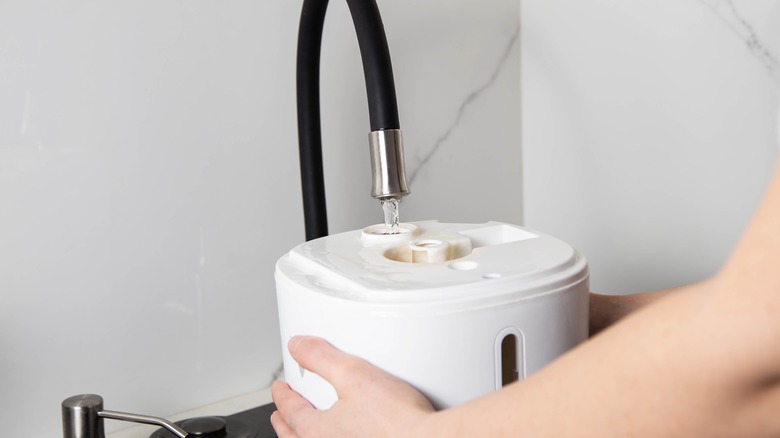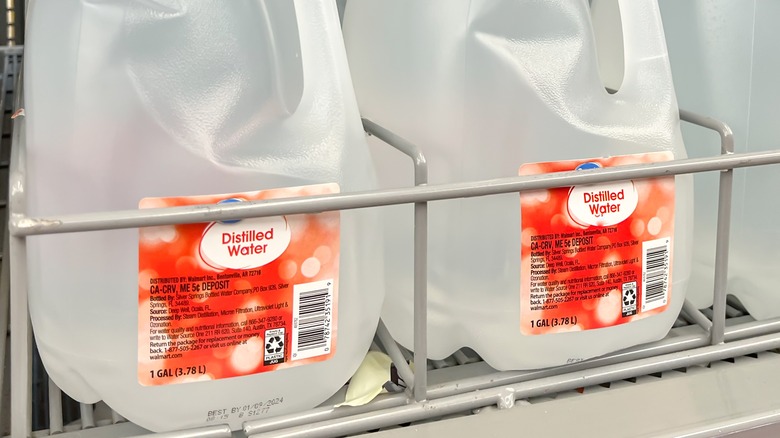Why The CDC Warns Against Using Tap Water In Home Medical Devices
Although the United States has one of the safest public drinking water systems globally, health experts report that there are cases in which tap water is not intended for use, such as when filling up at-home medical devices, reports a study published in Emerging Infectious Diseases. On January 11, the results revealed people's perceptions — or rather misperceptions — regarding the use of faucet water in at-home medical equipment.
Gathering survey data over a three-day period in August 2021, study findings showed that out of more than 1,000 participants, 33% were found to believe that tap water was free of bacteria and other microorganisms. Men, those who self-identified as Black or African American, and those who lived in cities, were more likely to answer this question inaccurately. When asked about the personal use of tap water in medical devices, 9% of individuals said they clean their contact lenses with faucet water. With a 4% increase, 13% of participants said they use tap water in nasal rinsing equipment, while the greatest number of participants (24%) stated that they use tap water to fill their humidifiers or continuous positive airway pressure (CPAP) machines.
Experts advise using sterile distilled water
As per the research, the study team points out that pathogens can be found in wells, water distribution systems, and plumbing pipes. Such microorganisms include nontuberculous mycobacteria (NTM), Naegleria fowleri, Legionella spp, Pseudomonas aeruginosa, and more. Nontuberculous mycobacteria (NTM), Pseudomonas spp., and Legionella spp, in particular, make up a significant number of waterborne disease-related hospitalizations and deaths every year.
As previously mentioned, while tap water has been deemed safe for consumption, inhalation of non-sterile tap water through medical devices can pose potentially serious health risks from infection (via CNN). Such risks are particularly high for vulnerable populations, such as older adults or infants. For example, the presence of Naegleria fowleri, or brain-eating amoeba, have been found in connection to tap water used in neti pots. Additionally, Acanthamoeba infections have been reported in conjunction with improper cleaning of contact lenses. The U.S. Centers for Disease Control and Prevention (CDC) reports that cases of Acanthamoeba infection are considered rare but this infection of the cornea can lead to blindness.
Rather than utilizing tap water, health experts stress the importance of filling at-home medical devices with distilled water. Alternatively, Healthline reports that tap water, which has been boiled for five minutes and allowed to cool is deemed sterile and can also be used.


